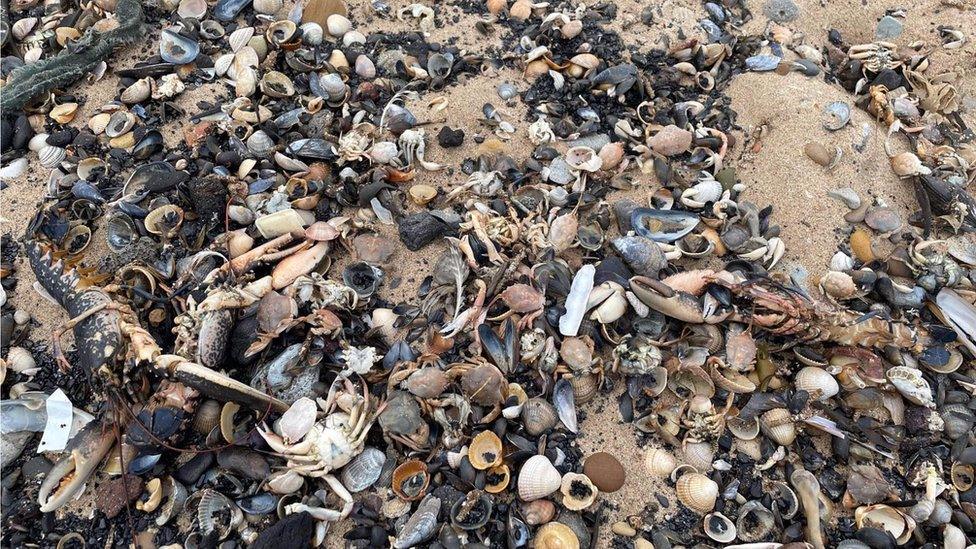Shellfish deaths: Fishers protest over more development
- Published
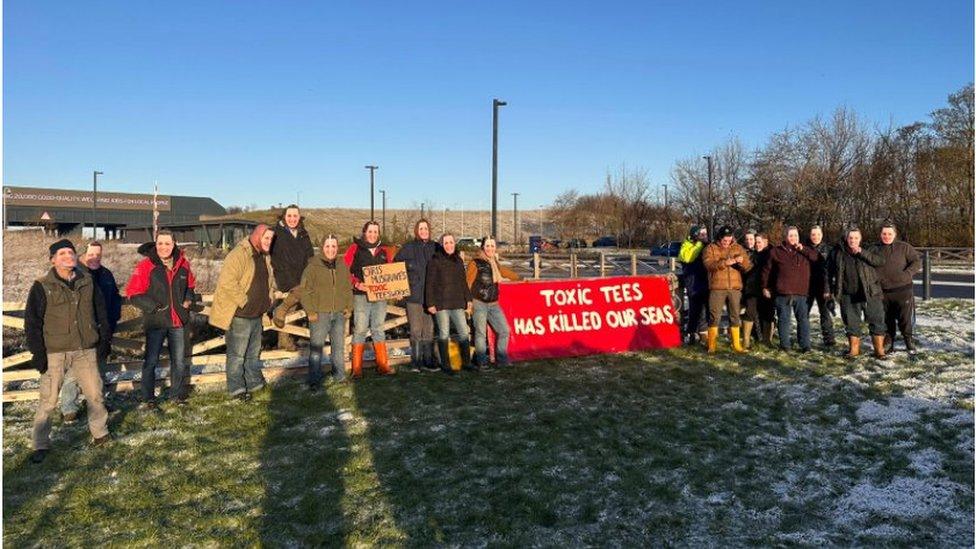
Protesters against further development at the Teesworks site gathered there on Wednesday
Fishers and campaigners have protested against further developments on the River Tees after crustacean deaths off the North East and Yorkshire coasts.
The protesters, who gathered at the Teesworks site, believe dredging has disturbed toxic chemicals and caused the mass deaths of shellfish.
However, the government and Tees Valley Combined Authority reject that claim.
Defra previously said a naturally occurring algae was the most likely cause of the die-off.
However, it has since established an independent panel of experts to assess all available evidence.
Commercial fishers working between Whitby and Hartlepool have complained of catastrophic catch losses since the first mass die-off in October 2021.
Development work along the River Tees has been continuing while the debate over whether dredging has affected marine life in the area rages.
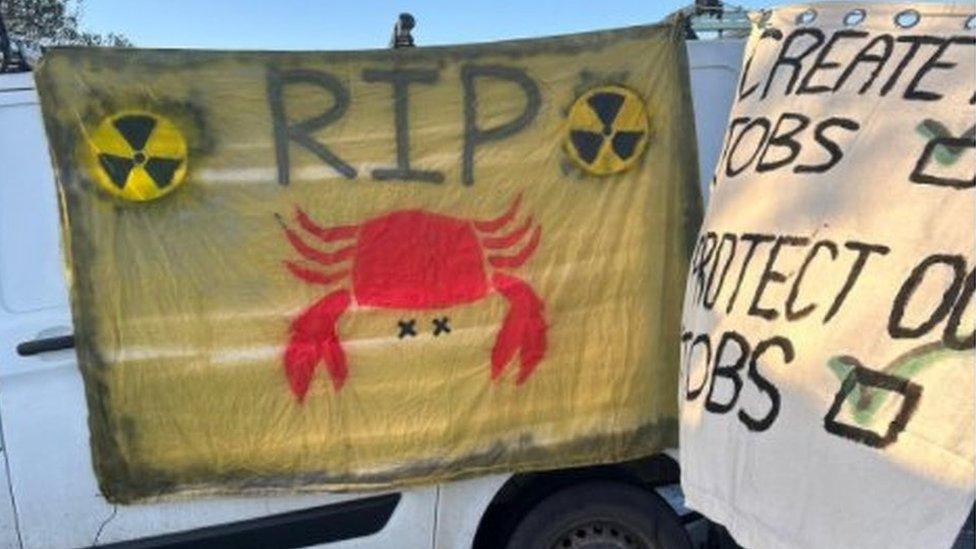
Protesters believe pollution from developments on the River Tees is responsible for marine deaths
In October, fishers told the Environment, Food and Rural Affairs Select Committee they were "terrified" of more dredging and feared it would lead to more shellfish deaths and more livelihoods being threatened.
The government has said an independent panel will reinvestigate by January.
One of the protesters, wildlife campaigner Sally Bunce, said she believed there was a "definite link" between dredging and the die-off.
"To continue with this dredge and to put it out at sea is unthinkable," she said.
"All we have to do is pause it until mid-January when these results are in."
The protest was staged a day after MPs criticised the government over an alleged lack of transparency surrounding the panel and its review.
In a letter to Environment Secretary Therese Coffey, environment committee chairman and Conservative MP for Scarborough and Whitby Sir Robert Goodwill said the inquiry should be "open and collaborative" in order to "rebuild trust and work towards a consensus".
Marine biologist Joe Redfern, who is also part of the Whitby Fishermen's Association, said: "The universities and the scientists agree that the pollution and the sediment coming out of the Tees has played a major part in killing those crabs and lobsters.
"We're here to say the dredging should be paused until that's proven to be completely safe."
Mr Redfern said fishing industry experts had hoped to be included as part of the government's independent panel.
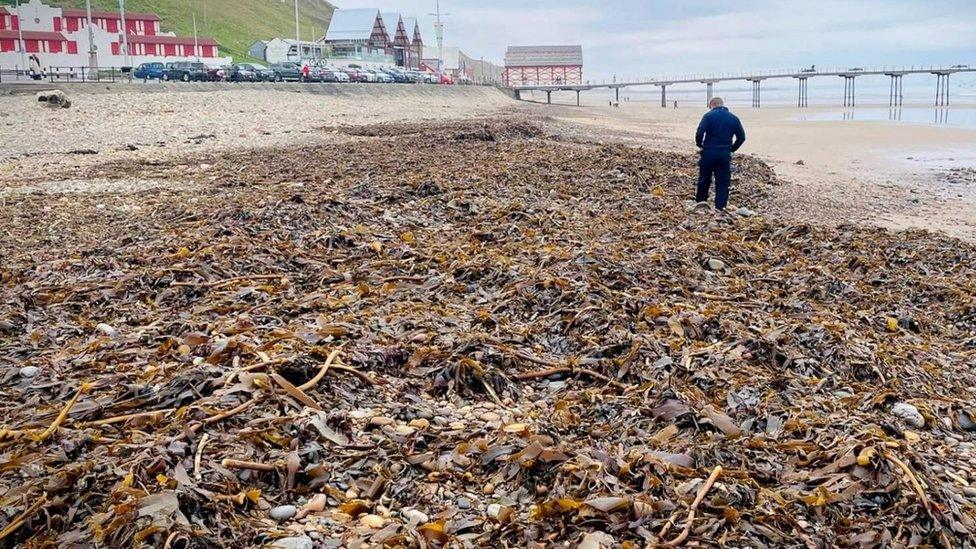
Dead crustaceans washed up at several spots along the North East and Yorkshire coast
"It's behind a closed door which Defra is controlling," he said.
"Unfortunately, we don't have the trust that this is being done in a way that's acting in the best interests of the environment and of our industry."
A spokesman for the South Tees Development Corporation said it operated in accordance with licences from the Marine Management Organisation, external and government guidance.
He said the first phase of dredging began on 1 September 2022, 11 months after the crustacean die off, and was "completed safely" on 9 November "with no issues reported".
A Defra spokeswoman said the committee's letter had been received and would be responded to "in due course".
She added: "We recognise fishing communities in the North East want as thorough an assessment as possible into the crab and lobster deaths last year.
"Whilst an investigation concluded a naturally occurring algal bloom was the most likely cause, all the evidence is now also being assessed by an independent expert panel."

Follow BBC North East & Cumbria on Twitter, external, Facebook, external and Instagram, external. Send your story ideas to northeastandcumbria@bbc.co.uk, external.
- Published13 December 2022

- Published15 November 2022
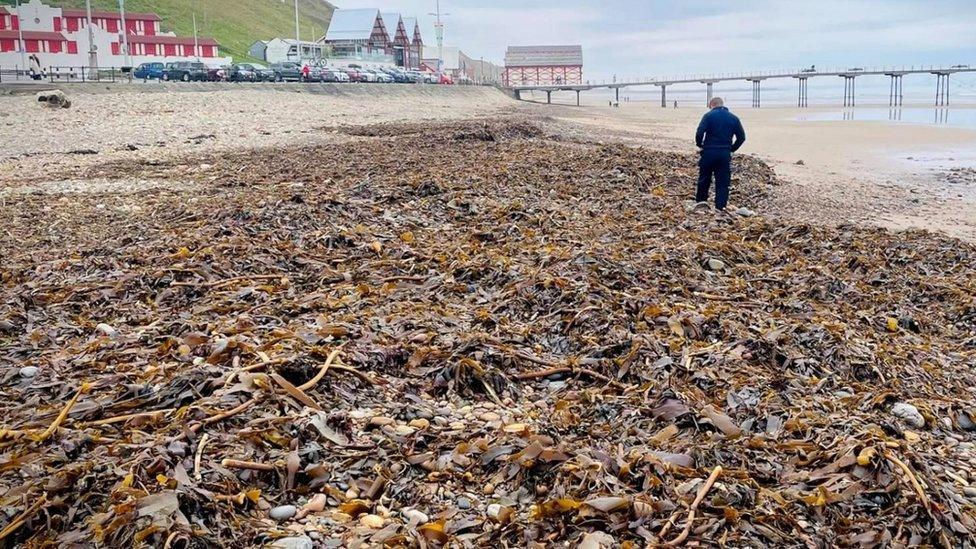
- Published1 November 2022
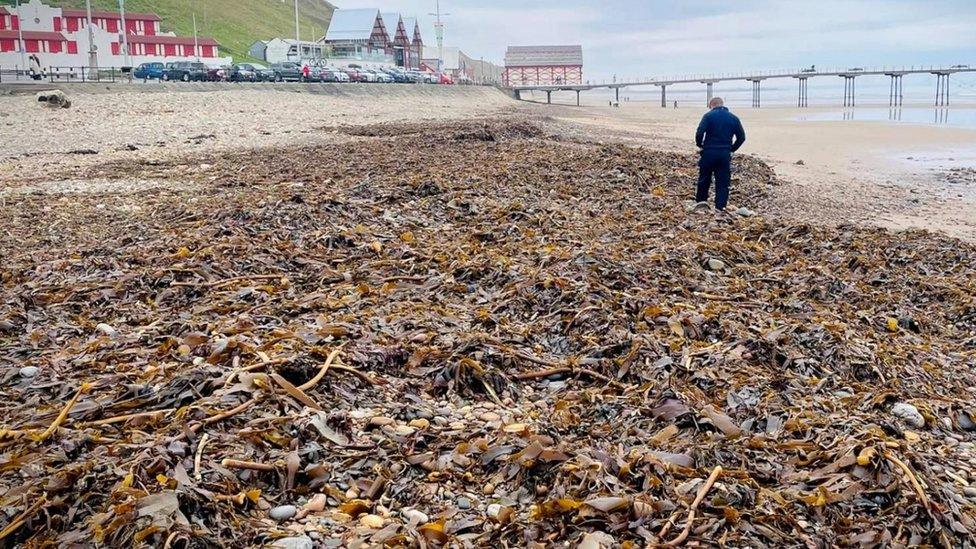
- Published25 October 2022
